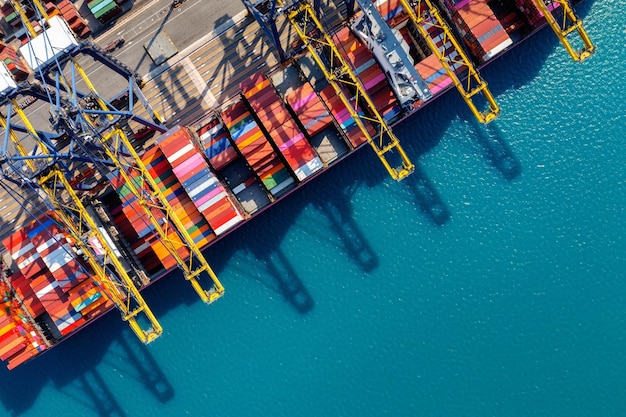Ocean Conservation Organizations: Protecting Our Precious Ecosystems
Introduction
Ocean conservation is a pressing issue that demands immediate attention. With the world’s oceans facing numerous threats, it is crucial to have organizations dedicated to their protection. These ocean conservation organizations play a vital role in safeguarding our precious marine ecosystems and promoting sustainable practices. In this article, we will explore the importance of these organizations and highlight some of the most prominent ones in the field.
The Significance of Ocean Conservation Organizations
Ocean conservation organizations serve as guardians of our marine environments, working tirelessly to protect them from various threats. These threats include overfishing, habitat destruction, pollution, climate change, and the decline of biodiversity. Such organizations play a pivotal role in advocating for policy changes, conducting research, and implementing conservation strategies. Their efforts aim to maintain the health and integrity of our oceans for future generations.
One of the primary functions of ocean conservation organizations is to raise awareness about the importance of marine ecosystems. Through educational campaigns, public outreach programs, and media engagement, these organizations strive to inform and inspire individuals to take action. By highlighting the value of oceanic biodiversity and the critical role oceans play in regulating the planet’s climate, they encourage people to become active stewards of our oceans.
Prominent Ocean Conservation Organizations
Here are some of the most notable ocean conservation organizations leading the charge towards a sustainable future:
- Oceana: Oceana is an international organization dedicated solely to protecting and restoring the world’s oceans. With offices around the globe, they work to influence policy decisions, combat illegal fishing practices, and advocate for marine protected areas.
- Conservation International: Conservation International focuses on the preservation of both terrestrial and marine ecosystems. Their marine program works towards safeguarding critical habitats, supporting sustainable fisheries, and promoting the establishment of marine protected areas.
- Surf Rider Foundation: Although primarily known for its work in coastal conservation, the Surf Rider Foundation actively campaigns for clean water and healthy ocean ecosystems. They engage local communities, organize beach cleanups, and work to eliminate plastic pollution in our oceans.
Approaches and Initiatives
Ocean conservation organizations employ various approaches and initiatives to tackle the challenges faced by our oceans. These include:
- Marine Protected Areas (MPAs): MPAs are designated zones where human activities are regulated to protect marine biodiversity. Ocean conservation organizations advocate for the creation and effective management of MPAs to preserve vulnerable habitats and allow for the recovery of depleted fish populations.
- Sustainable Fisheries: Overfishing has severe consequences for marine ecosystems and global food security. Many organizations collaborate with fishermen, policymakers, and consumers to promote sustainable fishing practices, such as implementing catch limits, avoiding destructive fishing methods, and supporting responsible seafood choices.
- Plastic Pollution Reduction: Plastic pollution poses a significant threat to marine life and ecosystems. Ocean conservation organizations actively engage in awareness campaigns, promote alternatives to single-use plastics, and lobby for legislation to reduce plastic waste and improve recycling infrastructure.
Case Study: The Coral Reef Alliance (CORAL)
“The planet’s coral reefs are among its most precious gifts, but they are under threat like never before.” – Sir David Attenborough
The Coral Reef Alliance (CORAL) is a prominent organization dedicated to the protection and restoration of coral reef ecosystems worldwide. CORAL focuses on building community partnerships, developing sustainable tourism practices, and conducting scientific research to support the resilience of coral reefs. Through their collaborative approach, CORAL works closely with local communities, governments, and businesses to create positive change for these fragile and essential ecosystems.
CORAL’s initiatives include coral reef monitoring, community engagement, and the establishment of locally managed marine protected areas. By involving and empowering local communities, CORAL ensures the long-term success and sustainability of their conservation efforts. Their work has resulted in increased coral reef resilience, improved fisheries management, and enhanced livelihoods for coastal communities.
Conclusion
Ocean conservation organizations play a crucial role in protecting our oceans and preserving their biodiversity. Through education, advocacy, and strategic initiatives, these organizations raise awareness, promote sustainable practices, and drive policy changes. Their efforts are essential in ensuring that future generations can enjoy the priceless benefits and beauty of our oceanic ecosystems. To safeguard the health and integrity of our oceans, it is imperative that we continue to support and collaborate with these organizations in their vital work.



